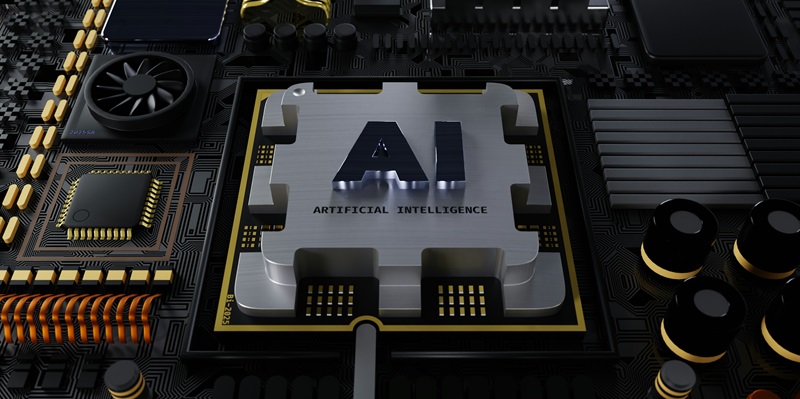The remarkable growth of technology has paved the way for innovative approaches in manufacturing. Nvidia, a frontrunner in AI and graphics chips, is at the forefront of this transformation. This article explores how Nvidia’s cutting-edge solutions are revolutionizing Taiwanese electronics manufacturers, turning traditional factories into autonomous and efficient hubs of the future.
Nvidia’s Pioneering Industrial Digitalization
Boosting Efficiency through Digital Twins
Nvidia’s foray into industrial digitalization harnesses the power of digital twin technology, enabling manufacturers to devise, simulate, and refine factory designs within a virtual space. This imaginative leap not only enhances operational efficiency but also creates a fertile ground for continuous innovation and improvement. Nvidia’s software, including Nvidia Metropolis for vision AI and Nvidia Omniverse for simulation, provides a sophisticated platform for this advanced technology. The digital twins facilitate a feedback loop that is both agile and precise, reducing the time and capital typically required for optimizing production environments.
The precision and sophistication of Nvidia’s software suite cannot be understated. By employing Nvidia Omniverse for physically-based rendering and simulation, manufacturers can create realistic factory models down to the last detail. These virtual environments empower companies to experiment with assembly line configurations and robotic tasks, enabling better decisions to be made before a single physical component is installed or altered. The result is a transformation of the manufacturing process, where real-world inefficiencies are ironed out with digital precision, promising a new era of factory optimization.
Synergy of Nvidia’s Tech Suite in Factories
Nvidia’s technology suite consisting of Metropolis, Omniverse, and Isaac AI technologies forms the backbone of the modern factory’s nervous system. Through this synergy, manufacturers can monitor, analyze, and automate their facilities with unprecedented levels of efficiency and flexibility. Nvidia’s strategic advancement in software for Omniverse simulations and its investment in the Isaac robotics platform hinge on the performance enhancements these technologies bring to the industrial landscape. For Nvidia, the business implications are twofold. Not only do they witness accelerated sales of their AI processors, which prove to be the cornerstone of such high-level automation, but they also bolster their stance in the stock market as synonymous with AI innovation.
Real-World Impact and Implementations
Taiwan’s Electronics Giants Leap Forward
The embodiment of Nvidia’s vision is evident in Taiwan’s electronics manufacturing giants such as Foxconn and Delta Electronics, which are boldly integrating Nvidia technologies to reinvent themselves. Foxconn, for instance, is leveraging digital twins in collaboration with the Siemens Xcelerator portfolio and Nvidia Omniverse to optimize its assembly lines and robotic arms deployment. The results speak for themselves: streamlined processes, enhanced sensor usage, and significantly improved operational efficiency. Delta Electronics has similarly harnessed Nvidia’s technology for the development of demo production lines that support the generation of synthetic data for vision model training, which acts as a vital cornerstone in the development of more accurate and reliable AI-driven systems.
Pegatron and Wistron are not far behind in embracing the transformative potential of Nvidia’s offerings. Pegatron is launching services that amalgamate Omniverse and Metropolis for a seamless digital twin workflow, integrating Nvidia NeMo and inference microservices. This orchestrates sophisticated operations that previously seemed out of reach. Wistron’s success story includes leveraging digital twins to slash server production launch times by half and enhance worker efficiency by over 50%. These case studies illuminate the tangible benefits that Nvidia’s industrial digitalization efforts are bringing to the sector.
Groundbreaking Partnerships and Platforms
The scope of Nvidia’s influence stretches beyond its direct clients to groundbreaking partnerships that speak volumes about the potential of the Isaac robotics platform. Siemens is utilizing Nvidia Isaac Sim to develop and test robotics skills, venturing into the forefront of industrial-grade AI. Meanwhile, Alphabet’s Intrinsic is integrating Isaac Manipulator into its robotics platform, trailblazing with scalable and universally applicable robotic grasping skills. This not only furthers the sophistication of robotics capabilities but also underscores the versatility of Nvidia’s platforms for wider industry adoption.
The partnerships and platforms are a testament to the capabilities Nvidia’s technologies unlock within the autonomous machine and robotics sectors. Renowned companies like BYD Electronics, Siemens, Teradyne Robotics, and Intrinsic are actively implementing the Isaac platform. These collaborations herald a new chapter in industrial automation where the fusion of advanced libraries, simulation techniques, AI models, and sophisticated robotics skills lead the charge in creating more intelligent and capable autonomous systems.
Enhancing Factory Autonomy with AI
During a keynote at Computex, Nvidia CEO Jensen Huang projected an influential vision for the future, where tens of millions of AI robots work intricately within the fabric of production lines. Such a future would leverage the real-time simulation capabilities and optimization processes enabled by Nvidia’s technology, mitigating the need for costly and time-consuming physical alterations. Huang envisioned autonomous factories that operate like well-oiled machines, where processes are constantly refined by intelligent systems to maximize efficiency and reduce waste.
In bringing Huang’s vision into reality, the crucial role played by Nvidia’s technology cannot be overstated. The digitization of factories, where real-time analysis and forecasting become central to routine operations, marks a major shift in traditional manufacturing paradigms. This paves the way for a new breed of smart factories that are flexible, resilient, and capable of self-improvement, laying the groundwork for a revolution in how products are conceived, produced, and delivered.

